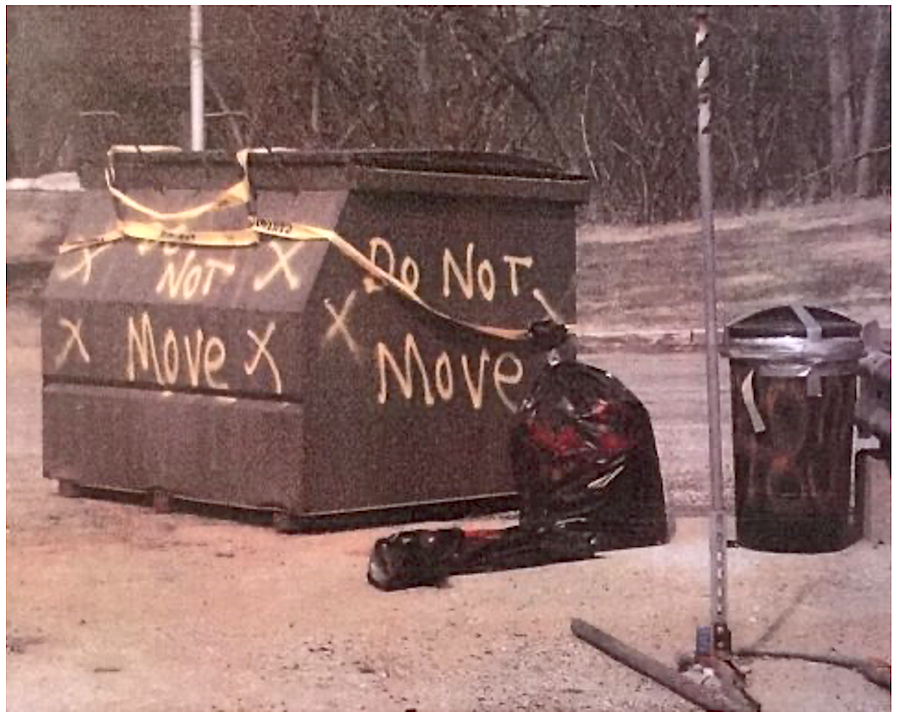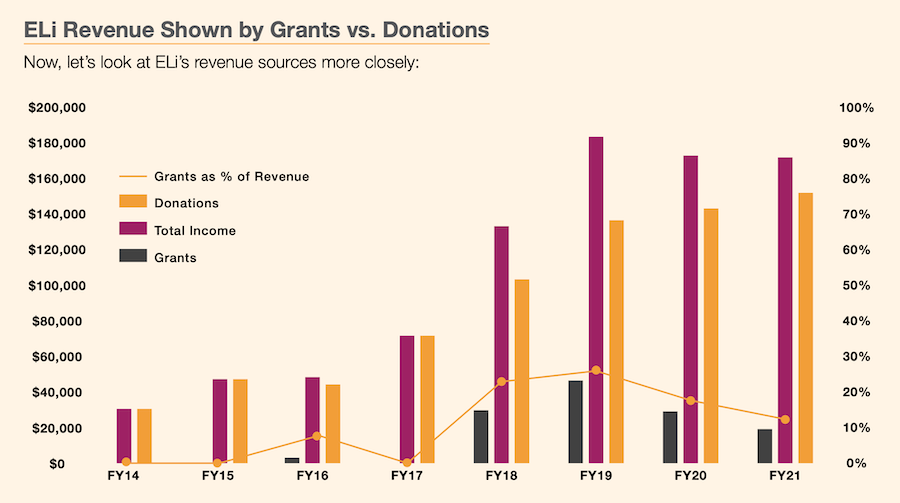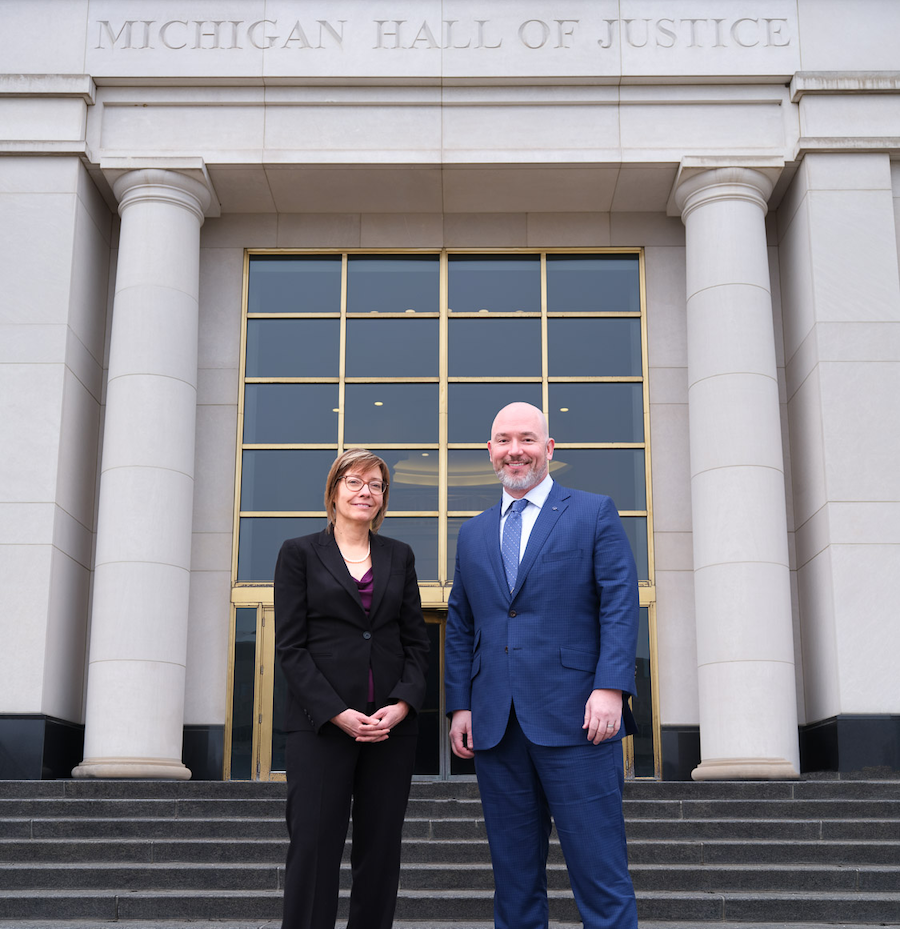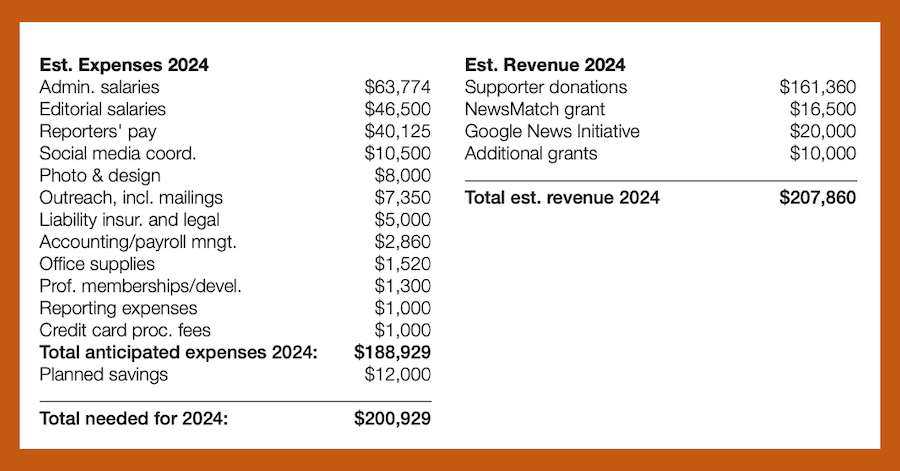Farewell from ELi Founder Alice Dreger
A long look back at ELi – and bright hopes for the future – from founder Alice Dreger.

By Alice Dreger
Rumors have been flying around town that I’ve left the fourth estate and joined the government. I’m here to confirm it’s true.
I submitted my last reported article to ELi in late September and then gave notice. A couple months later, on Dec. 5, East Lansing’s City Council approved my application to serve on the volunteer Zoning Board of Appeals (ZBA). I now help our municipal government by reviewing and voting on property owners’ requests to obtain variances from our zoning code, regulation about which I reported for over 10 years.
My work time is no longer spent scouring agendas, attending meetings, investigating our local government, examining big redevelopment proposals and triangulating all the parts for ELi readers. Instead, I’m working on a book about the people who bring local news to communities around America today — the madness and nobility of the pursuit of truth and justice at the local level. It’s a sequel, of sorts, to my last big book, Galileo’s Middle Finger, which was also about the pursuit of evidence. For the new book, I’ve been traveling the country interviewing local news publishers, editors and reporters. It’s been an absolute blast.
If you’ve been following my efforts at ELi for the last decade, you know where this farewell missive is going: I’m going to ask you to continue to support the ELi team in two ways, financially and by providing tips, feedback and guidance.
But first, I’d like to share a brief version of the history of ELi for those who are curious. I also need to thank some of the people who have made this endeavor work for the people of East Lansing.

ELi was first born in 2012 with the help of the two people who are still the organization’s tech managers, Lisa Lees and Morgan Lees. The chief reason I founded it in 2012 was because it was too darned hard to find out important factual information about what our city government was up to.
At ELi 1.0, I contributed city desk reporting along with others. Former mayor Vic Loomis provided a column on RV camping opportunities around Michigan. I and others brought readers PDFs of documents that were otherwise hard to find. And my spouse, Aron Sousa, produced local astronomy news, frequently objecting to my editing. (For the record, I did let him get away with headlines like “East Lansing Residents Will Have Easy Time Finding Uranus This Week.”)
In the 1.0 version, ELi ran as an unincorporated news cooperative. It worked in a way, but the lack of paid staff made it tough to keep ELi lively enough to maintain a readership. Over the months, I could see that, if ELi was going to be a real source of local news for the people of East Lansing, it would need to be incorporated as a nonprofit service organization and it would need paid staff.
I had helped run the Intersex Society of North America, a 501c3 nonprofit patient advocacy organization for many years, so I had experience with that type of organization. Then, by early 2014, three specific things had happened to spur my desire to go ahead and take ELi to that next level.
The first was East Lansing’s looming pension debt crisis, which some on Council were flatly denying even was a crisis. The second was developer Scott Chappelle’s “City Center 2” project and all the problems coming to light about that. The third was the ice storm of Winter Solstice 2013, which left thousands of us in the dark and cold for nine days or more. I realized from that storm how dangerous the lack of local news could be and how impossible it was to really hold a public utility like BWL accountable without serious reporters.
In the spring of 2014, Smitty Smith (of Pump House Concerts) agreed to take the reins as our first Managing Editor, working with me and attorney Thad Morgan on ELi’s IRS application for 501c3 nonprofit status. Our first Board of Directors consisted of Vic, Stephen Thomas, Mike Lawrence and me. The first article published in the 2.0 version of ELi in August 2014 was by Ann Nichols. It was about the bells ringing again at Peoples Church. That seemed a perfect way to kick off.
Slowly but determinedly, ELi’s team built a reputation of being a reliable, factual news service for the people of East Lansing. The work was made possible by many of us volunteering our labor, including Chris Root, who produced critical, data-based reporting on the city’s finances, real estate development, elections and the police department.
Little by little, we grew the donation base to be able to pay more people and, in 2018, ELi was admitted to the Institute for Nonprofit News (INN), which allowed us access to some small grants. As local news failed all around the state, we came to be the paper of record for our city. We steadily expanded our service, partnering with the League of Women Voters, WKAR and WBDM Impact Radio.
I laugh when I recall that, when we started ELi, I thought there wouldn’t be that much to report on. But the more we dug, the more we reported, the more information flowed in and the more we discovered.

My first really big story for ELi 2.0 related to a pair of environmental health-and-safety scandals at East Lansing’s wastewater treatment plant. I learned about it because of an anonymous packet of documents left on my front porch. The materials showed that the “clean-up” of a significant spill of mercury had been botched and covered up, accidentally turning the plant into a hazardous waste site and endangering workers. Additionally, city managers had failed to tell plant workers that the plant was riddled with friable (dangerous) asbestos for seven years following an expert report documenting the problem.
After workers lost a lawsuit against the city, the lead whistleblower in the case, a mechanic named Troy Williams, was fired by City Manager George Lahanas, one of many instances in which I worried I was hurting more vulnerable people than I was helping with my investigations.
At this point, I can’t count the number of reports I personally wrote for ELi’s audience. I estimate it at somewhere well over 1,000, possibly closer to 2,000. I edited or co-edited thousands more. What I loved about reporting for ELi compared to reporting I was doing for national outlets was the ability to do longitudinal reporting, to stay on a story for months or years.
The eBay land sale springs to mind here. That story began when I learned the City had auctioned off a million-dollar piece of public land. “How did I not know about that auction?” I wondered. Imagine my surprise when I was told I had missed it because it had occurred on eBay. I started digging and kept digging — and pushing for transparency even after Lahanas’ report on the matter.
There were so many other stories we stayed on longitudinally — the city’s finances, the Evergreen properties, various development deals. ELi readers were genuinely extraordinary, willing to stay with us on stories, able to manage long-form reporting, convinced of their right to open government.
If you’re a long-time ELi reader, you know why our reporting was so consistently strong for so long: because many of you stepped up to help in that reporting. I could not begin to count the number of times I called on those among you to help us understand a problem or figure out how to get more facts.
It would have been impossible, for example, for me to bring the story of who really benefitted from the Center City District bonds refinancing had a municipal bond expert not stepped up and spent days going through the materials with me and teaching me about things like the future value of money. Just to give you a sense of the type of reporting we were bringing, that report took nine workdays to complete and went through over a dozen drafts.
ELi readers are also extraordinary in how they’ve financially supported the organization. This has been critical to survival because, for various reasons, ELi has not been eligible for many grants over the years and, as the collapse of the local news industry shows, advertising can’t possibly pay for serious local news in the age where Google and Facebook drain that revenue stream.
As I examine similar news operations around the country, I can’t find a single other local news operation funded almost entirely by its readership that has lived as long as ELi except Nancy On Norwalk, in Connecticut. Many have failed for lack of that support.

And I always loved that that was our source of funding because it meant that ELi is truly of, by and for the people of East Lansing. It meant, too, that we had a built-in self-destruct button: lose the trust or interest of our readership and the whole thing would come crashing to a halt for lack of revenue.
Wondering why I finally threw in the towel?
In a word, burnout. As many of you know, I had been trying to hand off ELi for years before the board voted this past spring to hire Beth Peck, ELi’s current Executive Director and Publisher, to take over that portion of work from me. As some of you may recall, my attempt to take a long sabbatical in early 2022 fell apart, leading to a four-month publication shutdown last year and the convening of a special Task Force aimed at analyzing the problems. I came back to help with publication restart in September 2022 with the explicit understanding I would be out in a year.
It turned out to be 13 months; that’s OK, but I wasn’t going to drag it on longer. For years, I’ve been working past the point of physical exhaustion. At ELi, at various times, I’ve been publisher, executive director, managing editor, city desk editor, assistant editor, lead investigative reporter, development director, bookkeeper, and on and on. Conservatively speaking, I put in over a half-million dollars in unpaid labor in addition to the over $100,000 my spouse and I have donated in cash to bring East Lansing news.
But a lot of the burnout has to do with the psychological cost of bringing local news in a small town, something I think too few people outside serious local journalism understand. I am told I look exceptionally tough. The truth is that there have been many stories that have made me incredibly stressed out or sad to have to report.
It’s no coincidence that the last big investigative piece I reported for ELi was the story of why so many senior managers quit the city’s employ. The critics of that work can keep calling me all the names they want; it won’t hurt more than the actual reporting did. There’s nothing more painful than documenting, yet again, the road to hell being paved with good intentions.
And the environment for local reporting hasn’t gotten any easier. I thought the Michigan Democrats would take the opportunity of being in power in the state to pass stronger transparency and ethics laws. I was hoping they would also pass anti-SLAPP legislation that would protect reporters like me from frivolous lawsuits like the one brought by Chappelle. But they haven’t.

Lacking protections they deserve, more than ever, reporters in America are subject not just to stonewalling and legal threats but also obnoxious attempts at cancellation, silencing maneuvers and governmental intimidation tactics. I’ve been through all that here and, let me tell you, it wears you down.
I also have other things I want to do in my life, and I’m 57 and getting notably closer to rigor mortis by the day. Talking with so many other women who have given unpaid service to their towns to keep their neighbors from living in news deserts has really made me realize that there ought to be a limit on how much any one individual is expected to give. Listening to them talk about lying awake all night wondering if a headline is inappropriate, how they’re going to find more reporters, how they’re going to make payroll, whether it’s time to give up – man, I don’t miss that.
It's impossible for me to thank all the people who enabled the work I did with ELi, but I want to acknowledge especially the people who served with me as our top investigative reporters: Chris Root, Andrew Graham, Emily Joan Elliott, Nathan Andrus, Luke Day and Dustin DuFort Petty. What a kick-ass bunch these people are, unafraid to face facts, speaking truth to power all the time.
I would also like to thank Vic Loomis for setting up the ELi Investigative News Fund to make sure hard-hitting investigative work keeps having the resources it needs at ELi and Al Hargrave for stepping up to take on general development work, relieving me of that.
Besides thanking Beth Peck for taking over the role of CEO, I want to also recognize the remarkable folks who have served as our Managing Editors over the years: Smitty Smith, Ann Graham Nichols, Emily Joan Elliott and now Julie Seraphinoff.
And I want to thank the people who have served on our Boards of Directors: Vic Loomis, Stephen Thomas, Mike Lawrence, Travis Stoliker, Merem Frierson, Sam Hosey Jr., Ray Vlasin, Anne Hill, Jiquanda Johnson, Chuck Grigsby, Cody Harrell, Nathan Andrus, and Karessa Wheeler.
Most of all, I want to call out three people without whom this would simply not have been possible: Lisa Lees, Morgan Lees and Jodi Spicer. Lisa and Morgan fixed more tech problems than you would ever imagine on shockingly little money (and, by the way, Lisa has always volunteered her work, even past the point where I started getting paid). As ELi’s CFO, Jodi rescued me from drowning in bookkeeping and government paperwork and freed me up to do what I came for.
Even more than their labor, it was Lisa’s, Morgan’s and Jodi’s attitudes that kept me going — their shared belief that we had to keep the operation running because it is a core public service for the people of East Lansing.
So, yeah, this is where I ask you, one last time, for those two things I’ve been asking for years.
First, money. ELi is operating on about $200,000 per year. (It ought to be more so people can be paid more, but I never managed to achieve that.) The end-of-year fundraising campaign, which is going on right now, necessarily has to bring in most of next year’s budget in donations and yearly commitments if the operation is going to keep going through 2024. If the money drops too low, ELi has to close. It can’t spend its last dollars on news production, as it will have to spend its last dollars on properly shutting down and securing the archives.

At last report, ELI was about 50% of the way to the campaign goal, including matching dollars. That worries me. This period of transition is tough, and the team needs to have money in the bank if ELi is going to make the transition successfully. This is a fragile period, make no mistake. If you want ELi to keep coming, donate here. (Feel free to attach a note that says, “Here’s to the end of Alice nagging me for money.”)
Second, feedback. ELi’s editorial team needs to hear from you about tips, needs, wants and all the rest. Feeling like reporting is or isn’t going the way you want? Love or wondering about a particular line of reporting? See a fact that needs correcting? Confused about something in ELi’s arena? Know of a “public” meeting that hasn’t really been announced? Tell them. It is precisely that “audience engagement” (as the experts call it) that has made ELi such a strong journalistic asset in East Lansing.
If you’d like to reach me…well, it seems like many of you know where I live at this point, based on all the dropped-off anonymous tips plus the cinnamon buns and bottles of wine! (Thank you, again.) But if you’d like to write to me personally for any reason, please just use the contact link at my website.
In the end, what can I say but thank you. ELi has been an incredibly important part of my life, and I am so indebted to everyone who has made it possible. Know that I leave not with sadness but with gratitude, with joy and with genuine excitement that I get to use the Oxford comma again.
Keep pushing for the truth, East Lansing.
